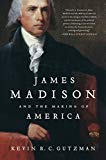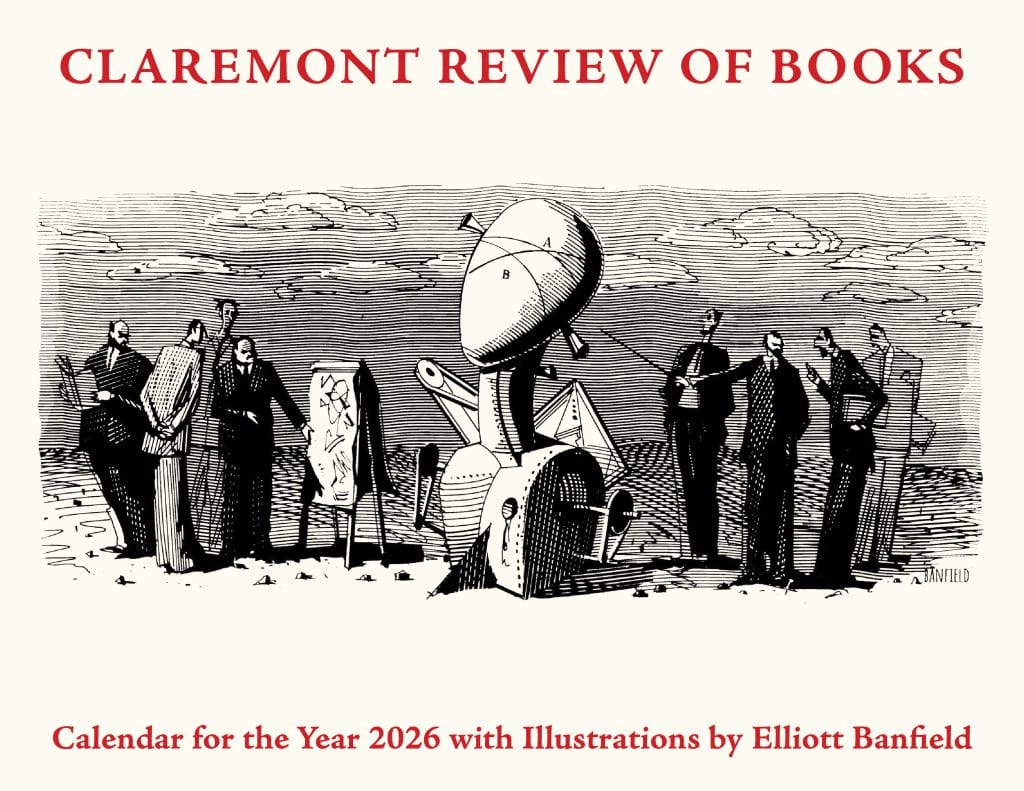Books Reviewed
A review of James Madison and the Making of America , by Kevin R. C. Gutzman; James Madison
, by Kevin R. C. Gutzman; James Madison , by Richard Brookhiser; and James Madison: A Son of Virginia and a Founder of the Nation
, by Richard Brookhiser; and James Madison: A Son of Virginia and a Founder of the Nation , by Jeff Broadwater
, by Jeff Broadwater
Three new biographies of James Madison—and it is not even the anniversary of his birth, marriage, or death. Why this great interest in Madison now? Part of the answer must lie in the larger spirit of our time, in our very great interest in the members of the founding generation, reflected in a spate of biographical and other studies of Benjamin Franklin, George Washington, Thomas Jefferson, and Alexander Hamilton, among others. Public interest in Madison has always lagged behind interest in the other four of the founders' Big Five. He lacks the glamour of his friend from Monticello, the glory of his leader from Mount Vernon, the sly wit and polymathism of Franklin, and the flash and drama of Hamilton. Madison is, it is probably fair to say, the "thinking man's founder," for his greatest calls on our attention, it seems, are his contributions to The Federalist, his theoretical breakthroughs that found their way into the Constitution, and his generally cerebral approach to politics. As all three of these biographers make clear, Madison had ideas aplenty but little panache.
The appearance of these volumes may thus represent no more than the turn of the dial: the other founders have received their share of recent attention and now it is Madison's turn. But there may be more to it than that, for as Americans in the early 21st century once again, for the umpteenth time, reappraise the founders, it appears that their most lasting and important contribution is the Constitution. Although it is a matter of controversy among our authors how deserved is Madison's popular title "Father of the Constitution," all three see his role in the making, ratification, and amendment of the Constitution to have been among his greatest acts, certainly greater than the role of any other of the great five. Washington presided at the Philadelphia convention but other than putting his immense prestige behind the Constitution contributed little to its making; Franklin attended the convention and spoke from time to time, but his interventions were not very consequential; Jefferson was in Paris not Philadelphia, and other than indirectly influencing Madison through his tireless advocacy of a Bill of Rights had nothing to do with the proceedings; Hamilton was at the convention for a time and in his major speech indicated how out of tune he was with the plan around which the delegates were coalescing. His contribution to ratification through The Federalist and his role in the New York ratifying convention were more substantial, of course, but still do not come close to Madison's part in the constitution-making itself.
* * *
The turn to Madison, then, does or ought to represent the mature form of interest in the founders. Our three biographers share this perspective to varying degrees. Kevin Gutzman devotes 65% of his book to Madison's career between the time he left Princeton in 1772 and the drafting of the Bill of Rights, roughly 20 of Madison's 85 years. At the other extreme is Richard Brookhiser, who gives those constitution-making years only one-third of his space. Holding to the mean is Jeff Broadwater, who gives 40% of his space to the constitutional Madison and the remainder mostly to Madison's life after the Constitution's adoption. Their widely disparate allocations of space reflect the different themes and emphases the authors choose to extract from Madison's career. Broadwater, a professor of history in the Department of History and Social Sciences in Barton College, modestly disclaims any intention of rivaling the classic biographical studies of Madison—Irving Brant's six volumes dating from 1941 through 1961, or Ralph Ketcham's massive one-volume opus from 1971. Instead, he focuses on "those aspects of Madison's life that are apt to be of the most enduring interest to the most readers: his fight for religious freedom, the debates over the adoption of the Constitution and the Bill of Rights, the origins of the party system, his relationship with Dolley Madison, his performance as commander in chief during the War of 1812, and his views on slavery." Thus Broadwater's book tends to be more episodic than the others with lightly sketched connective tissue linking each of his highlighted themes to the next. By contrast with Broadwater's entire chapter devoted to Madison's marriage and Dolley's political role, Gutzman hardly mentions her and when he does it is almost entirely in her role as a political hostess. A history professor at Western Connecticut State University, Gutzman even more than Broadwater writes a "public life" of Madison, a natural focus, perhaps, for, as Madison said of himself, "My life has been so much of a public one that any review of it must mainly consist, of the agency which was my lot in public transactions."
* * *
Brookhiser, a long-time senior editor at National Review, is the most experienced biographer of the three, having previously published on Washington, Hamilton, the Adamses, and Gouvernor Morris. His book reflects that experience in being the most accomplished and readable narrative. Nonetheless, he has his particular points of emphasis, too. Madison, he argues, is both the father of the Constitution and the father of American politics. He gives more of his space to the post-Constitution Madison than the others do because he is so impressed with Madison as the creator of the first American political party and of the American political press. As a professional writer, required to live by his wits and sales, Brookhiser is more sensitive to Madison's humanly engaging qualities than the others. He opens his book in medias res with a description of President Madison's efforts to rally his generals and secretary of war to do something to repel the British invasion of Washington during the War of 1812. As Brookhiser puts it: "Madison was not a warrior…. But that morning he was the chief executive and commander in chief. War was five miles away, and he rode to meet it." It was "the courage James Madison showed" on that day that first inspired Brookhiser to write his biography, and that vignette gets him and his readers off on a different foot from the usual beginning references to Madison's slight frame, pallid complexion, and bookish ways. He might have emphasized this virtue more consistently, for "moral courage" is one of the underrated characteristics of Madison's public career. Probably the most important example was Madison's persistent willingness at the constitutional convention to press beyond the existing consensus among the American political class.
Brookhiser budgets very little of his space to Madison's role at the convention and to what the issues at the convention were. Nor does he speak of the political innovations, largely due to Madison, that make the Constitution so remarkable. He is ambivalent about Madison's role in constitution-making, although not as much as our other two authors. Although "Madison was called the Father of the Constitution during his lifetime," he writes, "[i]t is a misleading title if taken too literally," for, among other reasons he "did not get exactly the document he wanted." Nonetheless, he concludes, "Madison earned his paternity of the Constitution."
Brookhiser gives his readers very little concrete sense of what Madison did not get and whether it matters. He does not provide what a historian or a biographer ought to supply, an account of why Madison wanted the features that he did. Though he helps us assess Madison as a human being, Brookhiser does not attempt to explain Madison as a statesman and political thinker. So far as he does speak of Madison's losses at the convention he limits himself to the standard story about representation: Madison sought to have population-based representation in both houses of Congress, but the convention instead compromised and established equal representation for states in the Senate. Brookhiser rightly notes Madison's letter to Jefferson complaining that "the plan should it be adopted will neither effectually answer its national object nor prevent the local mischiefs which everywhere excite disgust against the state governments." Granted, Madison was very dissatisfied with the convention's compromise, but that was not the basis for his assessment of "the plan's" shortcomings, as a later letter to Jefferson (October 1787) explains at length. More than anything Madison bemoaned the loss of his favorite new idea for the Constitution, a congressional veto over state legislation. The veto was meant to keep the states in their proper federal orbits and to protect the rights of individuals within the states. It is difficult not to conclude that Brookhiser gives us so much familiar forest and so few trees because his book is under-researched.
* * *
Kevin Gutzman stands at almost the opposite extreme from Brookhiser—many, many trees but little forest. Indeed one of the striking features of Gutzman's book is the absence of any sort of introductory or concluding statement where he might attempt to explain his purposes or his general sense of the man, his career, and his achievements. Many individual features of Gutzman's presentation are quite fine—the discussion of Madison during the War of 1812, for example—but the whole is disappointing in being so chary of conclusions, and generally bereft of broad lessons and reflections.
Gutzman's treatment of Madison the Constitution-maker particularly suffers from this defect. In his case one cannot complain about lack of specifics—he provides a quite detailed play-by-play, or at least day-by-day, narrative of the convention debates. But his narrative is under-analyzed. So far as themes emerge, they are quite similar to Brookhiser's much sketchier presentation: the battle over representation in the legislature. Gutzman relates this battle (somehow) to a presentation of Madison's original plans, as embodied in the Virginia Plan, as simply nationalist, a term that at the convention possessed a specialized meaning that Gutzman does not recognize. He also overly credits the distorted interpretation of the proceedings contained in Robert Yates's notes on the debates. Though Gutzman shows a much better acquaintance with the crucial primary sources, he reveals the same neglect of the important recent work on Madison and the Constitution. That may be why his underdeveloped forest ends up looking like Brookhiser's.
So far as Gutzman takes a point of view on Madison's fathering the Constitution he seems to be largely disapproving. He stretches the nationalism of Madison's position in a way that suggests disapproval; more explicitly, he blames Madison for advocating population-based representation in the Senate and for resisting what he presents as the sensible desire of men like Pennsylvania's John Dickinson to create some larger role for the states in the new government. Nor does he appear to understand that the crucial Madisonian insight into reforming federalism lay not so much in increasing the powers of the central government as in making the powers effective, which involved above all modifying the workings of traditional federalism. Two modifications were crucial: allowing the central government to act directly on its citizens without the intermediation of the states, and limiting or, ideally, eliminating state agency in and on the central government. Had he better understood the principles of Madison's reform efforts he would (one hopes) have had more sympathy with Madison's intransigencies.
Gutzman, I'm guessing, is so reluctant to put forward a general assessment of Madison because his assessment is largely negative, at least regarding his part in framing the Constitution. It would have been a stronger book had Gutzman brought his reservations to the surface and argued them out candidly.
* * *
If Brookhiser errs in the direction of over-generality and Gutzman in the direction of over-specificity, Broadwater gets things just about right. Among other things, he faces more forthrightly than the others the difficult question of Madison's alleged swings from extreme nationalism to Jeffersonian states-rights and back again to nationalism. He presents a plausible account of these shifts because he sees clearly that the early Madison was not an extreme nationalist nor the later Madison an extreme states' righter. Unlike the other two, Broadwater grounds his study in the best Madison scholarship and thus understands Madison's position on the Constitution better. His knowledge and the sobriety and plausibility of his judgment of Madison's career are all on display in the following passage from his Preface:
As much as he worried about state and federal relations, he worried more about maintaining a republican system and striking a proper balance between majority rule and minority rights…. [I]n the heyday of his own nationalism in the 1780s, Madison valued a strong central government primarily as a check on provincial and capricious state governments. His most audaciously nationalistic proposal [was for] a congressional veto over state laws…. Madison believed consolidation and aristocracy, on the one hand, and states' rights and unfettered democracy, on the other, both undermined republican government. When he saw the political currents shifting too far in one direction, he would tilt toward the other.
That, in a few sentences, is as good an account of James Madison as there is likely to be.
* * *
For Correspondence on this review, click here.







